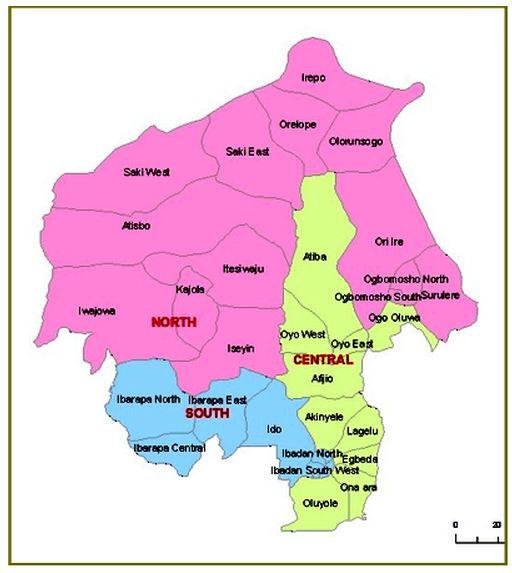Oke-Ogun and Ibarapa have a historic opportunity to reshape the political landscape of Oyo State, but the path ahead requires a concerted and strategic effort. To understand this opportunity, it is vital to reflect on what has allowed Ibadan to consistently dominate governance in the state. Is it the sheer size of their voting power or their financial influence? While both factors are undeniably important, it is essential to recognize that voting power, when leveraged effectively in a free and fair election, can shift the balance. Additionally, financial influence, though influential, does not necessarily guarantee electoral success if the voters are informed and mobilized.
Ibadan’s enduring dominance can be attributed to its strong sense of self-identity and unified interest. However, it is time for Oke-Ogun and Ibarapa to break free from this political hegemony. The need to rally behind a candidate from our region is paramount, not only to gain political representation but to ensure our voices are no longer marginalized in the governance of Oyo State.
To succeed, we must capitalize on our collective strengths—13 Local Government Areas (LGAs) with indigenous majorities—providing us with a formidable voter base. Yet, we must also confront challenges such as voter apathy, internal divisions, and the politics of tokenism, which have historically undermined our potential. This will require strategic sensitization and orientation to galvanize the populace and eliminate skepticism about our chances.
In this process, collaboration with other marginalized regions, including Oyo and Ogbomosho, is key. Our biggest threat is not external opposition but internal fragmentation and a lack of belief in our own capabilities. If we fail to unite and build a cohesive front, we risk perpetuating the status quo.
A closer look at our situation through a SWOT analysis provides further clarity on the way forward:
**SWOT Analysis:**
**Strengths:**
– **A Voting Bloc with 13 LGAs**: Oke-Ogun and Ibarapa together command a significant voter base with indigenous majorities in 13 LGAs, a powerful asset that should be fully mobilized.
– **Indigenous Population**: The regions’ large indigenous populations can be a potent force for political mobilization and support.
– **Potential for Regional Cooperation**: There exists a strong possibility of forging alliances with other marginalized regions, amplifying our collective power in the race for governorship.
**Weaknesses:**
– **Voter Apathy**: Low voter turnout remains a major concern, as disengaged voters can dilute the impact of our collective strength.
– **Divisions and Tokenism**: Deep-rooted divisions along ethnic, religious, and political lines often splinter our efforts, weakening the unity needed for effective mobilization.
– **Resource Constraints**: Limited financial resources could hinder our ability to effectively campaign and compete with more affluent regions, particularly Ibadan.
**Opportunities:**
– **Regional Alliances**: Cooperation with other marginalized areas, such as Oyo and Ogbomosho, could create a broader coalition, amplifying our collective influence and electoral prospects.
– **Growing Dissatisfaction with Ibadan’s Dominance**: As discontent with the political centralization in Ibadan grows, there is an opening for Oke-Ogun and Ibarapa to capitalize on this dissatisfaction.
– **Grassroots Mobilization**: Our indigenous populations are a valuable asset. Effective grassroots campaigns can ensure strong voter turnout and support, especially when focused on local issues and priorities.
**Threats:**
– **Lack of Cooperation Among Marginalized Regions**: Disunity or failure to collaborate with other disenfranchised regions would severely limit our chances of success.
– **Ibadan’s Financial Power**: The financial muscle of Ibadan presents a significant challenge, as it can sway voters and undermine the efforts of less-resourced regions.
– **Self-Doubt**: A lack of confidence within the Oke-Ogun and Ibarapa communities could lead to disengagement and low morale, which would hinder our electoral efforts.
In conclusion, the future of Oke-Ogun and Ibarapa in Oyo State’s political scene lies within our grasp—if we believe in our collective strength. However, it is important to recognize that power is never handed over willingly; it must be seized through determination, unity, and strategic action. This is our moment to step up, and together, we can reclaim our rightful place in the governance of Oyo State.
Let’s take action now.
Thank you.

